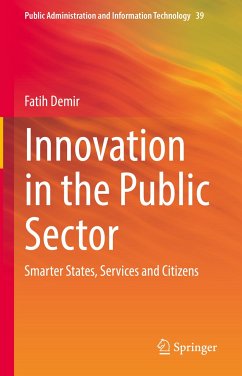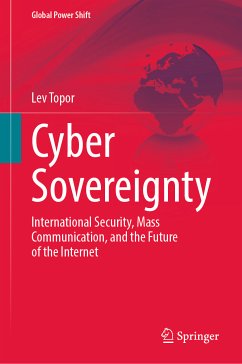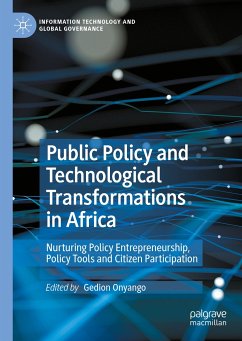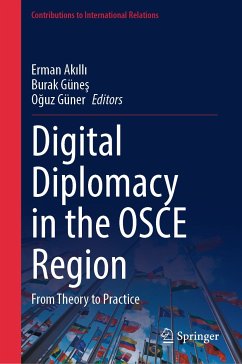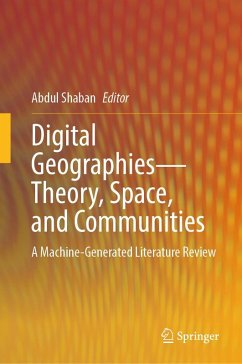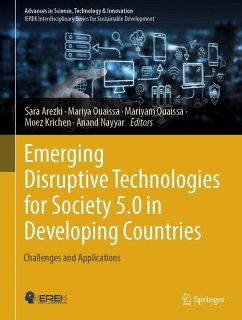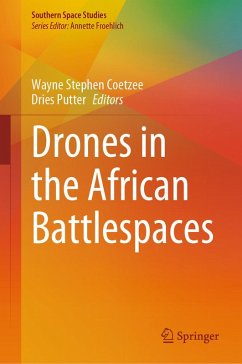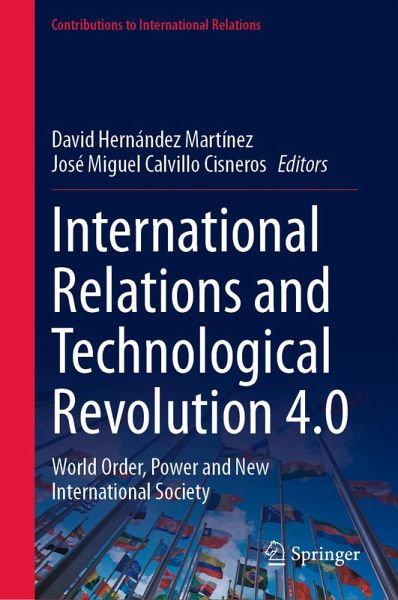
International Relations and Technological Revolution 4.0 (eBook, PDF)
World Order, Power and New International Society
Redaktion: Hernández Martínez, David; Calvillo Cisneros, José Miguel

PAYBACK Punkte
56 °P sammeln!
This book analyzes the global implications of the fourth industrial revolution, the Technological Revolution 4.0, on International Relations. Examining the intersection of new technologies and international power, this volume engages in extensive discussions and debates surrounding the immediate and long-term consequences of innovations, such as artificial intelligence, big data, virtual reality, smart cities, and drones.The rapid and potent march of technological progress intensifies global curiosity and concern, particularly regarding control over these new technologies. The book discusses e...
This book analyzes the global implications of the fourth industrial revolution, the Technological Revolution 4.0, on International Relations. Examining the intersection of new technologies and international power, this volume engages in extensive discussions and debates surrounding the immediate and long-term consequences of innovations, such as artificial intelligence, big data, virtual reality, smart cities, and drones.
The rapid and potent march of technological progress intensifies global curiosity and concern, particularly regarding control over these new technologies. The book discusses essential questions, such as the theoretical analysis of new technologies in international relations, their impact on the 21st-century world order, and the pivotal roles of international actors in this revolution. Finally, it examines how these new technologies are reshaping international security, cooperation, and communication.
A critical resource for researchers and the general public, this book provides a contemporary and theoretical framework to contextualize the international discipline in light of the challenge posed by new technologies, while also discussing the key variables that mold international society in the 21st century within the parameters of this technological revolution. Moreover, it anticipates the prominent dynamics and challenges that will shape global structures, regions, and nations in the forthcoming decades.
The rapid and potent march of technological progress intensifies global curiosity and concern, particularly regarding control over these new technologies. The book discusses essential questions, such as the theoretical analysis of new technologies in international relations, their impact on the 21st-century world order, and the pivotal roles of international actors in this revolution. Finally, it examines how these new technologies are reshaping international security, cooperation, and communication.
A critical resource for researchers and the general public, this book provides a contemporary and theoretical framework to contextualize the international discipline in light of the challenge posed by new technologies, while also discussing the key variables that mold international society in the 21st century within the parameters of this technological revolution. Moreover, it anticipates the prominent dynamics and challenges that will shape global structures, regions, and nations in the forthcoming decades.
Dieser Download kann aus rechtlichen Gründen nur mit Rechnungsadresse in A, B, BG, CY, CZ, D, DK, EW, E, FIN, F, GR, HR, H, IRL, I, LT, L, LR, M, NL, PL, P, R, S, SLO, SK ausgeliefert werden.



